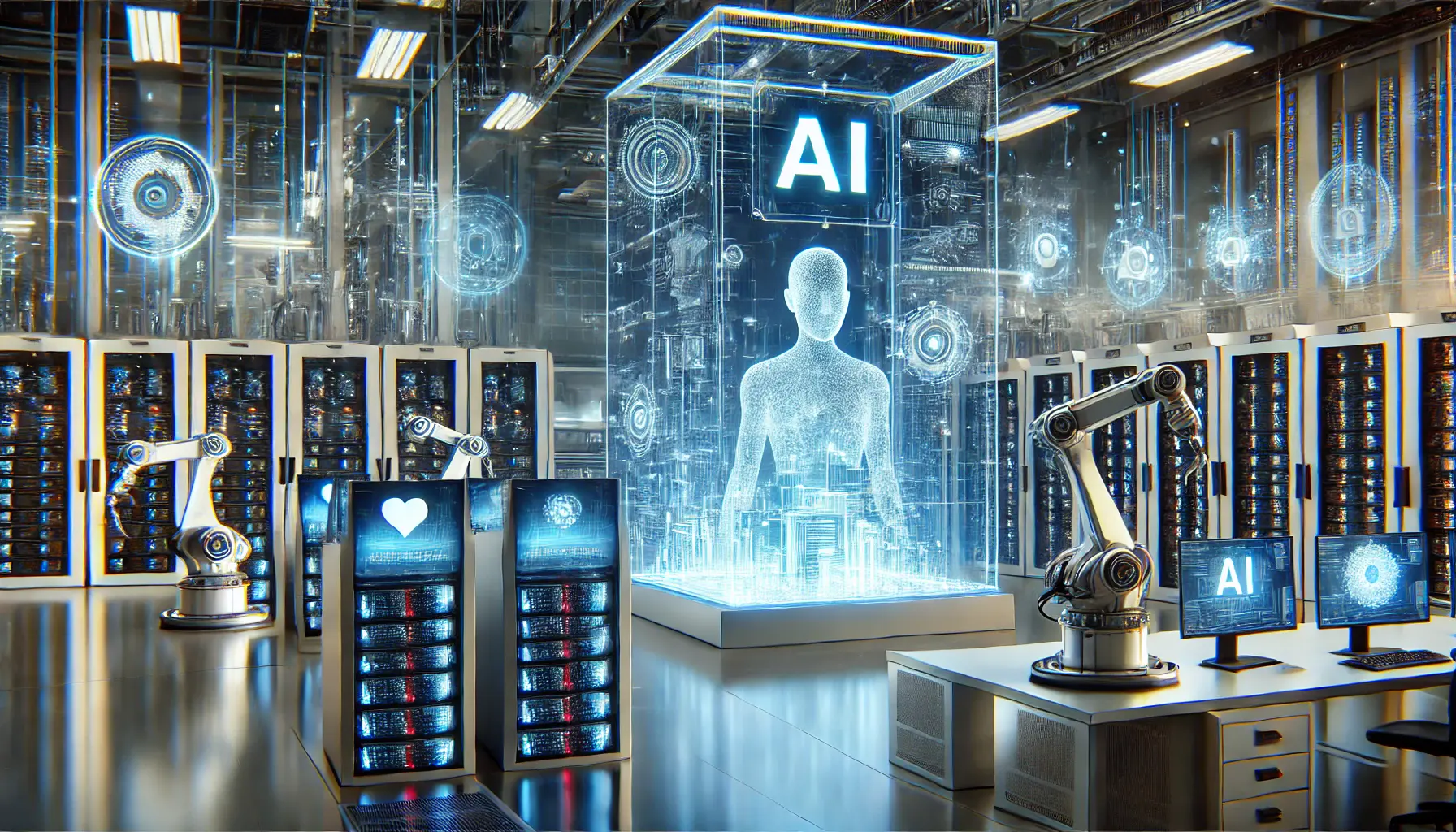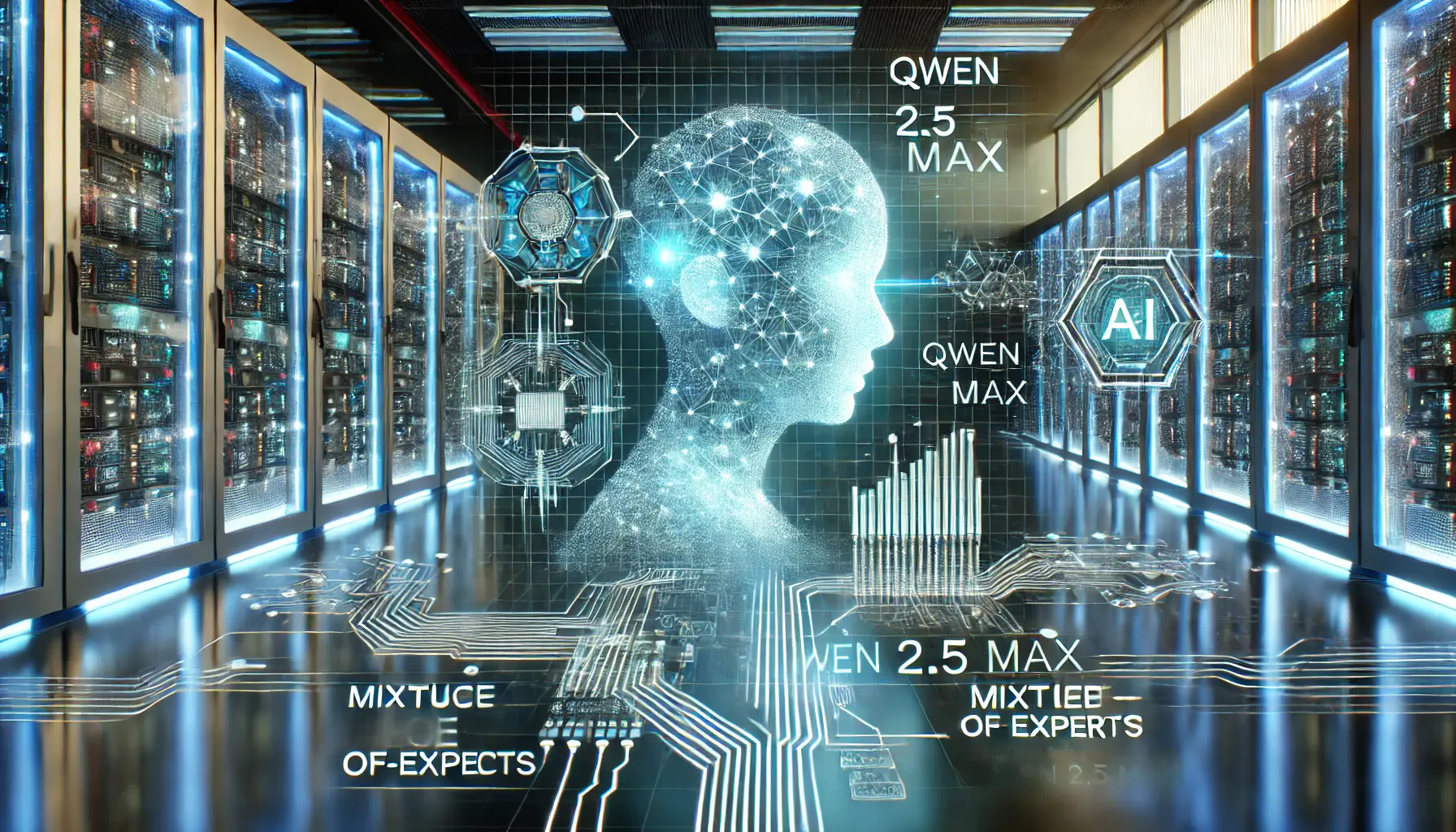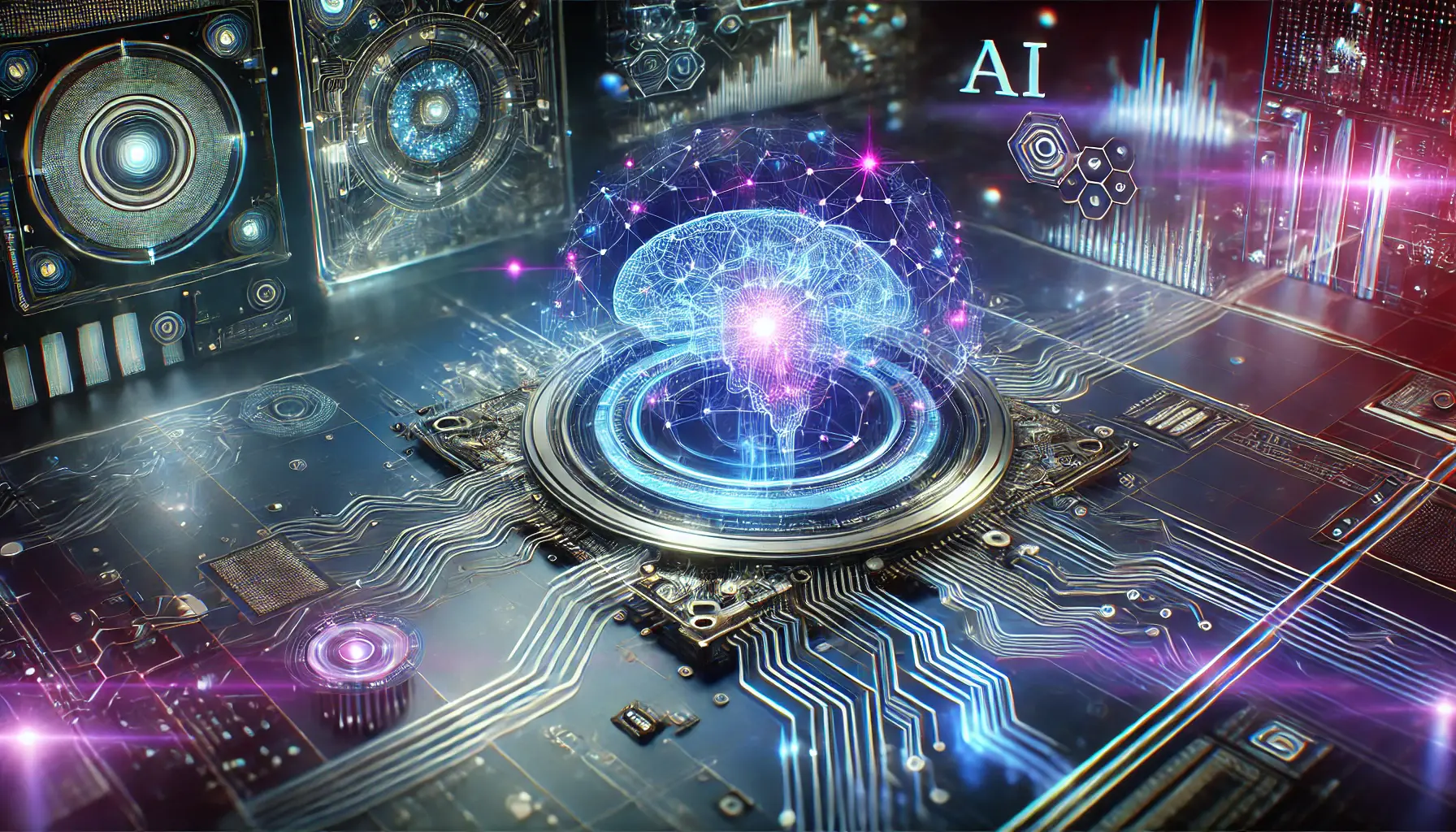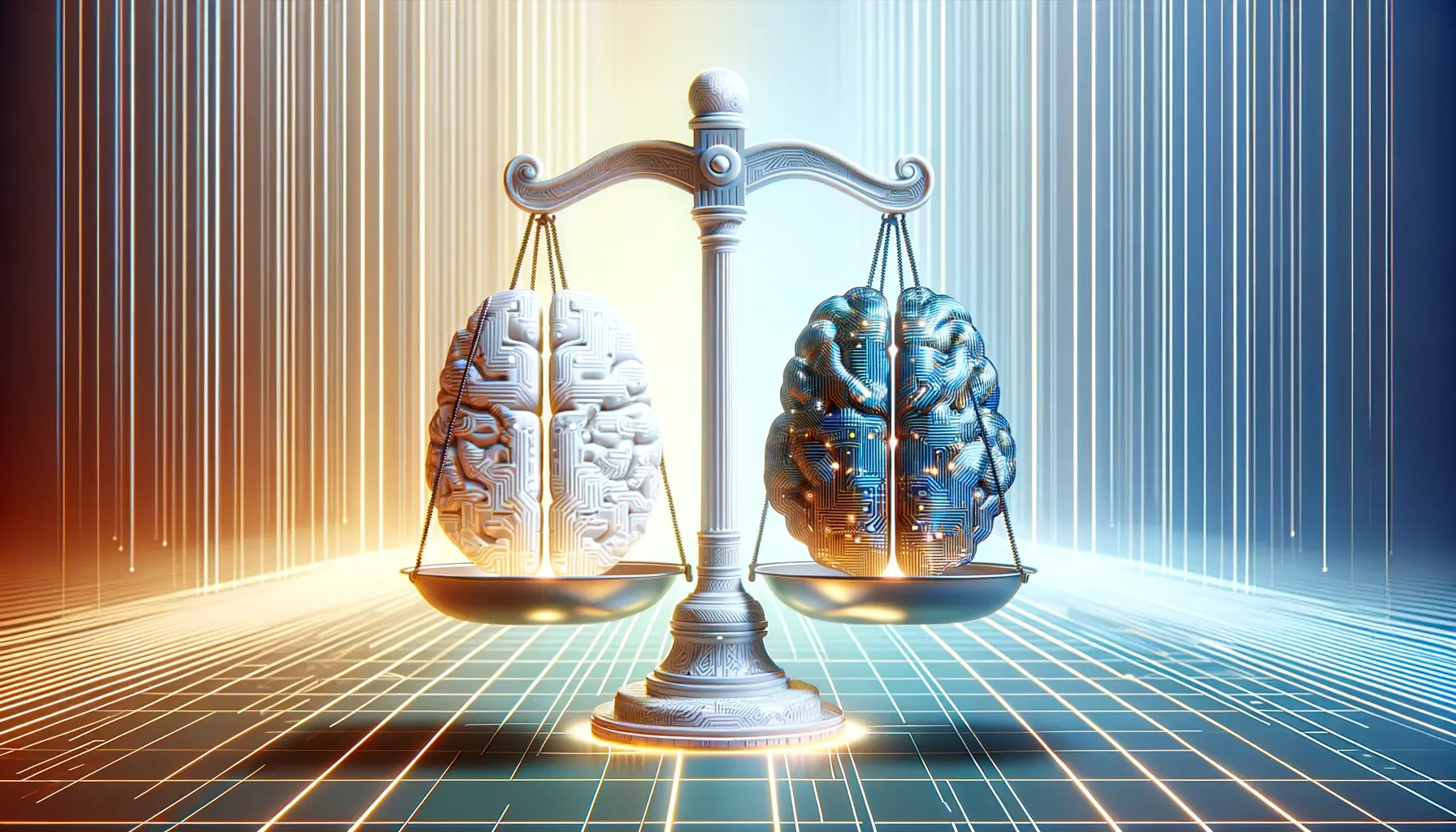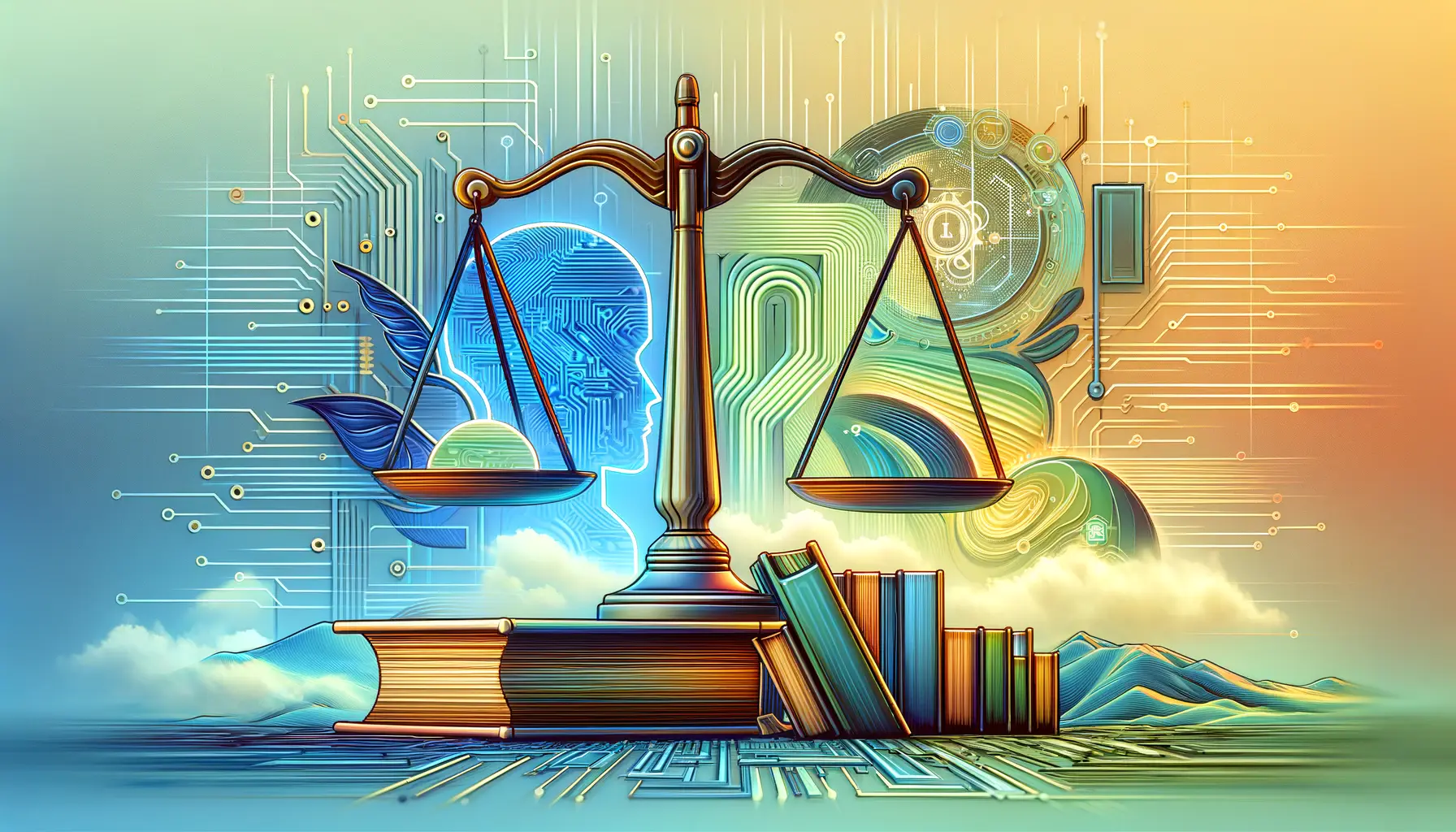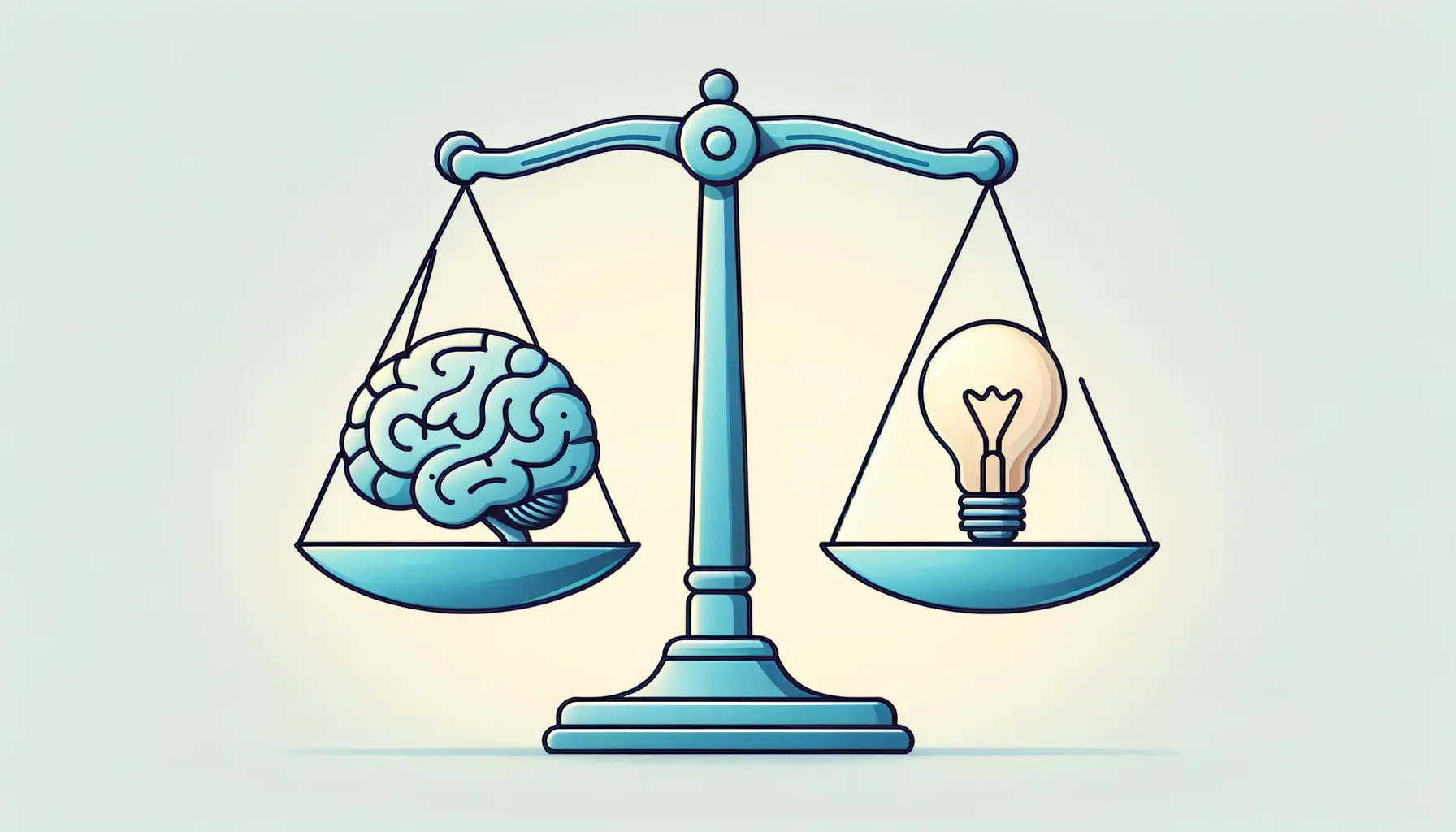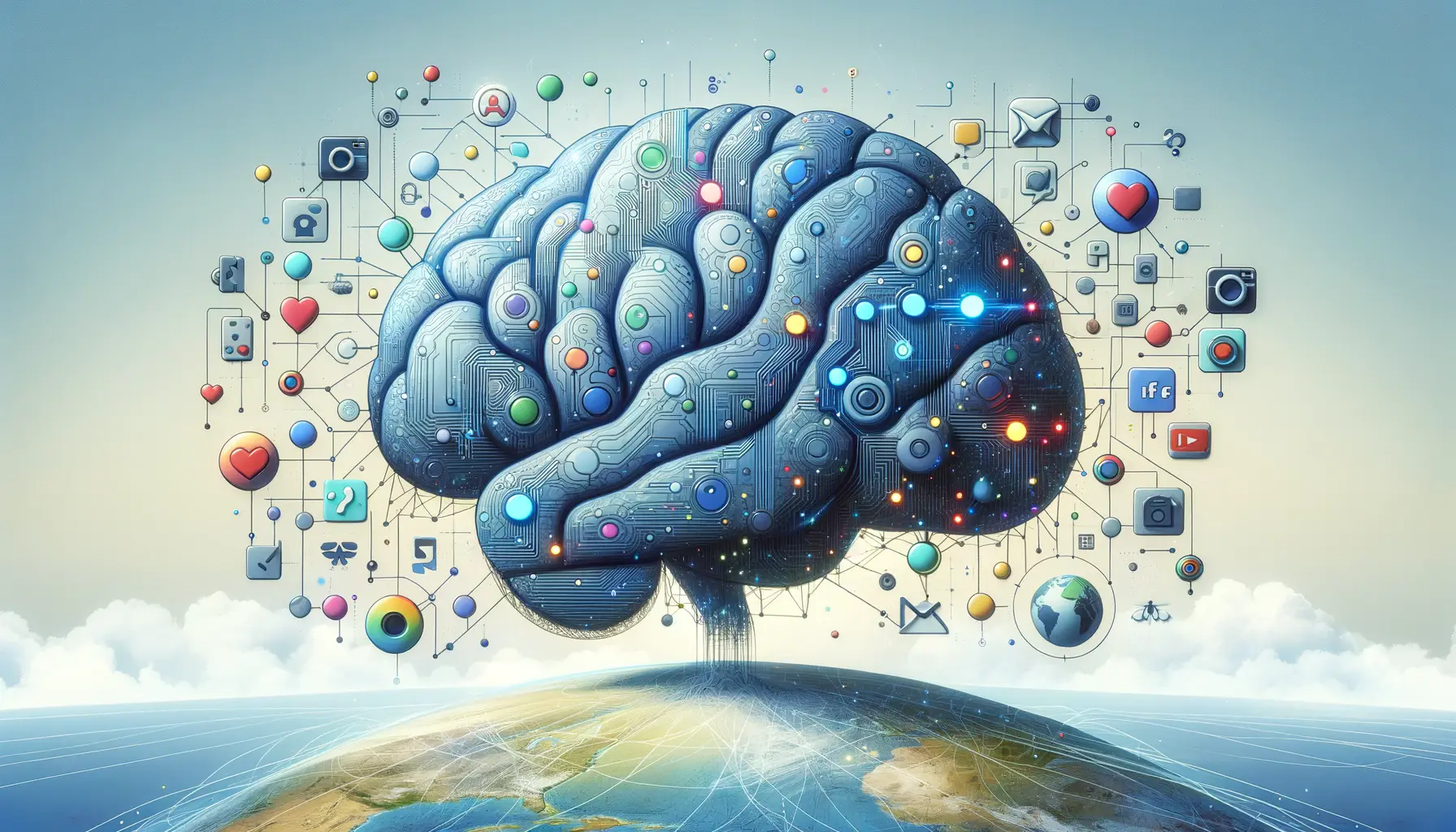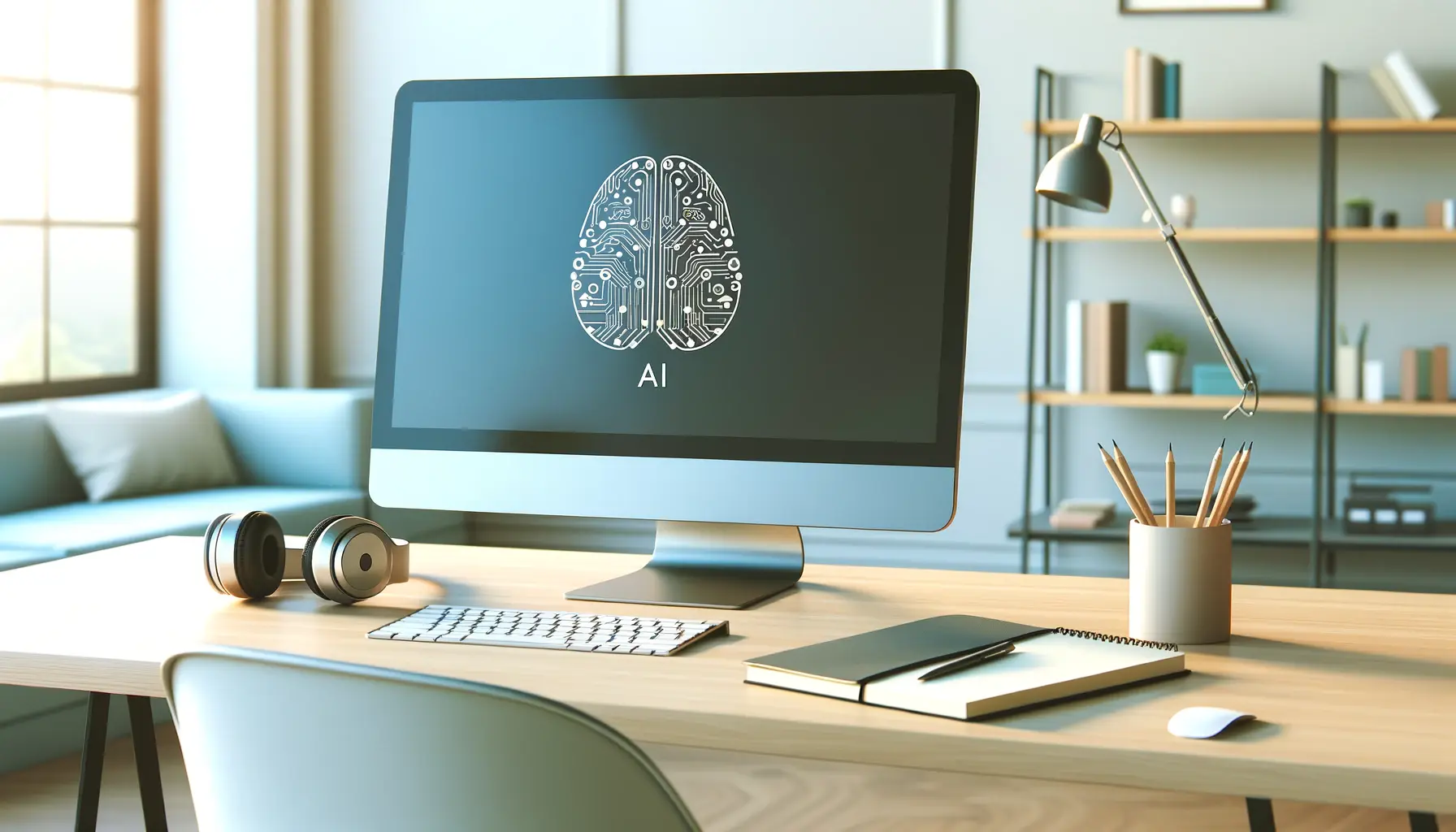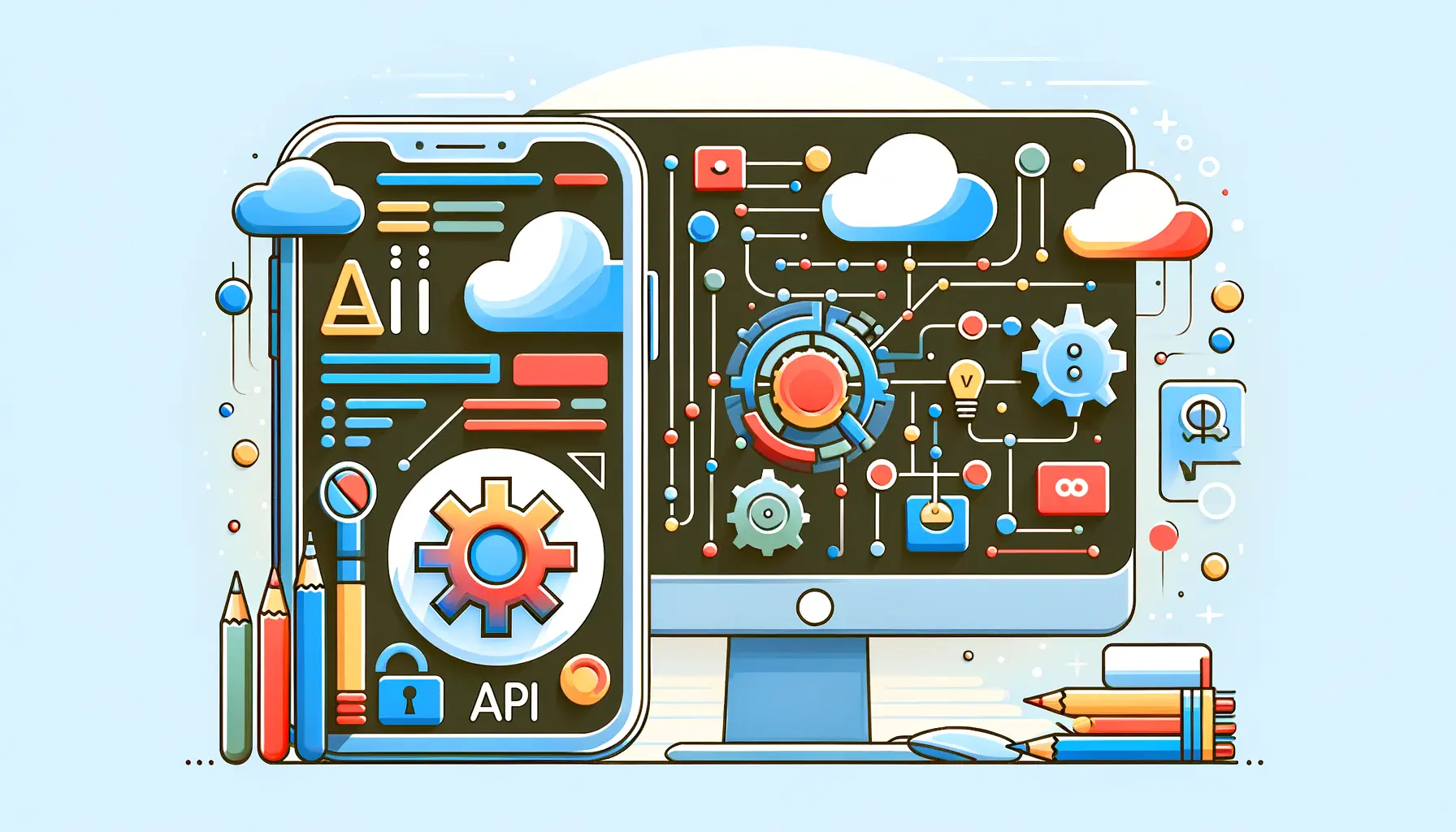The advent of artificial intelligence (AI) has ushered in a new era of technological innovation, transforming how we interact, work, and solve complex problems.
Among the forefront of these advancements is Claude AI, a conversational AI developed by Anthropic.
This AI system is designed to navigate the intricate landscape of ethics in digital communication, ensuring that conversations remain safe, respectful, and aligned with human values.
Claude AI represents a significant step forward in the quest to create AI that not only understands human language but also the nuances of ethical considerations that come with it.
As we delve deeper into the capabilities and ethical framework of Claude AI, it becomes clear that this technology is not just about processing information or executing tasks.
It’s about fostering a safe environment for users to interact with AI, where the technology is deeply ingrained with principles of harmlessness, honesty, and helpfulness.
This commitment to ethical AI development sets Claude AI apart, making it a beacon of responsible innovation in the AI community.
- Understanding Claude AI’s Ethical Framework
- The Role of Constitutional AI in Shaping Ethics
- Challenges in Ethical AI Development
- Enhancing User Trust Through Transparency
- Future Directions in Ethical AI
- Empowering Users with Ethical AI
- Integrating Ethical AI into Society
- Forging Ahead: The Ethical AI Journey with Claude AI
- Claude AI’s Ethics: Your Questions Answered
Understanding Claude AI’s Ethical Framework
Claude AI’s ethical framework is built on the foundation of Constitutional AI, a novel approach that embeds ethical guidelines directly into the AI’s operational parameters.
This method ensures that Claude’s interactions are not only effective but also ethically sound, aligning with broader human values and rights.
The framework is designed to guide the AI in making judgments about its outputs, steering clear of toxic or discriminatory responses and promoting a positive impact on society.
The development of Claude AI by Anthropic highlights a proactive stance on addressing the ethical challenges that come with AI.
By prioritizing safety, honesty, and utility, Claude AI aims to mitigate the risks associated with generative AI systems, such as the propagation of misinformation or the reinforcement of biases.
This ethical orientation is crucial in building trust between humans and AI, ensuring that the technology serves as a force for good.
Key Principles Guiding Claude AI
At the heart of Claude AI’s ethical framework are several key principles that guide its interactions and decision-making processes.
These principles include:
- Non-maleficence: Avoiding harm to users by filtering out responses that could be misleading, harmful, or offensive.
- Autonomy: Respecting user privacy and autonomy by not storing or misusing personal data.
- Justice: Ensuring fairness in responses, avoiding biases that could disadvantage certain groups.
- Transparency: Being open about the AI’s capabilities and limitations, fostering an understanding of how AI decisions are made.
These guiding principles are not just theoretical ideals but are actively implemented in Claude AI’s operations, shaping how it interacts with users and handles data.
This commitment to ethical AI is a testament to Anthropic’s dedication to responsible AI development, setting a standard for the industry.
Claude AI’s ethical framework, grounded in Constitutional AI, ensures that its interactions are safe, respectful, and aligned with human values, marking a significant advancement in ethical AI development.
The Role of Constitutional AI in Shaping Ethics
The introduction of Constitutional AI into Claude AI’s development process marks a pivotal shift in how AI systems are designed and deployed.
This innovative approach integrates a set of ethical guidelines, or a “constitution,” into the AI’s learning process, ensuring that its responses adhere to predefined ethical standards.
This mechanism is crucial for preventing the AI from generating harmful or biased content, thereby safeguarding users from potential negative impacts.
Constitutional AI operates on two levels: first, by teaching the AI model to critique its own responses based on the ethical constitution, and second, by employing reinforcement learning from human feedback (RLHF) to refine its judgments.
This dual approach allows Claude AI to evolve its understanding of ethical nuances over time, making it more adept at navigating complex social and moral landscapes.
Implementing Ethical Standards in AI Conversations
Implementing ethical standards in AI conversations involves more than just programming an AI with a list of dos and don’ts.
It requires a deep integration of ethical reasoning into the AI’s decision-making processes.
Claude AI achieves this by analyzing each potential response against its ethical constitution, choosing the one that best aligns with its principles.
This process ensures that every interaction with Claude AI is underpinned by a commitment to ethical integrity.
- The AI assesses the potential impact of its responses, avoiding those that could cause harm or offense.
- It prioritizes user privacy, ensuring that sensitive information is handled with the utmost care.
- Claude AI actively works to eliminate biases in its responses, promoting fairness and equality.
- Transparency is maintained, with the AI openly communicating its limitations and decision-making criteria.
This meticulous approach to ethical AI development not only enhances the user experience but also contributes to the broader goal of creating AI that benefits society.
By embedding ethical considerations into the core of Claude AI, Anthropic is leading the way in responsible AI innovation.
The integration of Constitutional AI into Claude AI’s development exemplifies a forward-thinking approach to ethical AI, ensuring that the technology acts in the best interest of users and society.
Challenges in Ethical AI Development
While the development of Claude AI represents a significant advancement in ethical AI, it is not without its challenges.
Creating an AI system that consistently adheres to ethical guidelines while effectively engaging with users across a myriad of topics presents a complex set of hurdles.
These challenges range from technical limitations to the inherent unpredictability of human language and interaction.
One of the primary obstacles is ensuring that the AI’s ethical framework remains robust across diverse cultural and social contexts.
What is considered ethical or appropriate in one culture may not be viewed the same way in another.
This cultural variability requires Claude AI to have a flexible understanding of ethics, one that can adapt to the nuances of global communication.
Addressing Bias and Fairness
Another significant challenge in ethical AI development is addressing and mitigating biases.
AI systems learn from vast datasets that, unfortunately, may contain biased information.
This can lead to AI responses that inadvertently perpetuate stereotypes or discrimination.
Claude AI tackles this issue through its Constitutional AI framework, which includes principles specifically designed to counteract bias.
However, continually identifying and correcting biases in the AI’s learning material is an ongoing process that requires vigilance and dedication.
- Developing mechanisms to detect and correct biases in real-time.
- Ensuring the AI’s training data is diverse and representative of a wide range of perspectives.
- Engaging with experts from various fields to understand the multifaceted nature of bias and fairness.
These efforts are crucial for maintaining the ethical integrity of Claude AI, ensuring that it serves as a positive force in users’ lives.
The challenge of bias in AI is not only a technical issue but also a moral one, highlighting the importance of ethical considerations in AI development.
Mitigating bias and ensuring fairness in AI responses is an ongoing challenge that requires continuous effort and innovation.
Enhancing User Trust Through Transparency
Building user trust is paramount in the adoption and effective use of AI technologies like Claude AI.
Transparency about how the AI operates, makes decisions, and learns from interactions is crucial for fostering this trust.
Users need to feel confident that the AI they are interacting with respects their privacy, aligns with ethical standards, and operates in a predictable and understandable manner.
Claude AI addresses this need for transparency by openly communicating its capabilities and limitations.
This openness helps demystify AI technology for users, making it more accessible and less intimidating.
By understanding how Claude AI processes information and adheres to its ethical constitution, users can have more meaningful and trustful interactions with the AI.
Privacy and Data Security
In the digital age, privacy and data security are of utmost concern to users.
Claude AI’s commitment to ethical AI extends to rigorous data protection measures, ensuring that user data is handled with the highest standards of privacy and security.
This involves not only securing the data from unauthorized access but also respecting user consent and preferences regarding data usage.
- Implementing state-of-the-art encryption and security protocols to protect user data.
- Adhering to global data protection regulations and standards to ensure compliance and safeguard user rights.
- Providing users with clear information about data collection, usage, and storage practices.
These measures reinforce Claude AI’s position as a user-centric AI, where user trust and safety are prioritized.
By addressing privacy and data security proactively, Claude AI sets a benchmark for responsible AI development and deployment.
Transparency, privacy, and data security are foundational to building user trust in AI technologies like Claude AI.
Future Directions in Ethical AI
The journey of Claude AI and its ethical framework is an ongoing process, with future advancements poised to further revolutionize the landscape of conversational AI.
As technology evolves, so too will the strategies for embedding ethics into AI systems.
The future of ethical AI is not just about refining existing models but also about exploring new paradigms that can more effectively align AI behavior with human values and societal norms.
One promising direction is the development of more sophisticated models of ethical reasoning within AI.
These models could enable AI like Claude to understand and apply ethical principles in more complex and nuanced ways, mirroring the ethical decision-making processes of humans more closely.
This advancement could lead to AI systems that are not only more reliable and trustworthy but also capable of contributing positively to ethical discussions and decisions.
Collaboration and Standardization in Ethical AI
Another key area of focus for the future of ethical AI is the collaboration between AI developers, ethicists, policymakers, and the public.
By working together, these stakeholders can help to establish standards and guidelines for ethical AI that are both robust and flexible, accommodating the diverse needs and values of global users.
This collaborative approach can also facilitate the sharing of best practices and innovations in ethical AI development, accelerating progress in the field.
- Developing international standards for ethical AI to ensure consistency and fairness across different regions and cultures.
- Creating forums and platforms for dialogue between AI developers, users, and ethicists to discuss ethical challenges and solutions.
- Encouraging public engagement and education on ethical AI to demystify the technology and promote informed discussion about its role in society.
The future of ethical AI, exemplified by initiatives like Claude AI, is bright with potential.
By continuing to prioritize ethics in AI development, we can ensure that this powerful technology serves the greater good, enhancing our lives while respecting our values and rights.
The future of ethical AI will be shaped by advancements in ethical reasoning, collaboration across sectors, and the development of global standards.
Empowering Users with Ethical AI
The empowerment of users stands at the core of Claude AI’s mission, reflecting a broader trend in the ethical AI movement.
By designing AI systems that are not only intelligent but also aligned with ethical principles, developers can provide users with tools that enhance their lives without compromising their values or safety.
Claude AI exemplifies this approach, offering a conversational AI that respects user autonomy, promotes fairness, and contributes positively to societal well-being.
This user empowerment is achieved through Claude AI’s commitment to transparency, privacy, and ethical engagement.
By understanding the ethical framework that guides Claude AI, users can interact with the AI more confidently and effectively.
This empowerment extends beyond individual interactions, influencing how society as a whole perceives and utilizes AI technology.
Enhancing Decision-Making and Creativity
Claude AI’s ethical framework not only protects users but also enhances their decision-making and creativity.
By providing accurate, unbiased information and generating creative outputs, Claude AI serves as a valuable tool for problem-solving, learning, and innovation.
This capability is particularly important in fields such as education, research, and content creation, where AI can augment human abilities and contribute to more informed and creative outcomes.
- Supporting educators and students in personalized learning experiences.
- Assisting researchers in analyzing vast amounts of data and generating new insights.
- Enabling content creators to explore new ideas and express themselves in novel ways.
As Claude AI and similar ethical AI systems become more integrated into various aspects of life, their potential to empower users and foster a more informed, creative, and ethical society becomes increasingly apparent.
The future of AI lies not just in advancing technology but in enhancing human capabilities and ethical understanding.
Ethical AI like Claude AI empowers users by enhancing decision-making, creativity, and ethical engagement, paving the way for a future where AI and humans collaborate for the greater good.
Integrating Ethical AI into Society
The integration of ethical AI like Claude AI into society marks a significant milestone in our technological journey.
As these AI systems become more prevalent in everyday life, their ethical frameworks will play a crucial role in shaping how technology influences our world.
The goal is not just to prevent harm but to actively contribute to human flourishing, leveraging AI’s capabilities to address societal challenges, enhance well-being, and promote justice and equity.
For this vision to be realized, it is essential that ethical AI development is guided by a broad spectrum of voices, including those from marginalized and underrepresented communities.
This inclusivity ensures that AI technologies like Claude AI are attuned to the diverse needs and values of society, making them more effective and equitable tools for positive change.
Future Societal Impacts of Ethical AI
The societal impacts of ethical AI are vast and varied, touching on everything from education and healthcare to governance and environmental sustainability.
By acting ethically and responsibly, AI systems can help to democratize access to information, streamline public services, and foster a more inclusive and equitable society.
Moreover, ethical AI can play a pivotal role in addressing global challenges, such as climate change and inequality, by providing innovative solutions and amplifying human efforts to create a better world.
- Improving access to quality education through personalized learning tools.
- Enhancing healthcare delivery with AI-driven diagnostics and treatment recommendations.
- Supporting fair and transparent governance through data analysis and decision support systems.
- Contributing to environmental sustainability by optimizing resource use and reducing waste.
The integration of Claude AI and other ethical AI systems into society offers a promising path forward, one where technology serves as a catalyst for positive transformation.
As we continue to navigate the complexities of the digital age, the principles of ethical AI will be instrumental in ensuring that our technological advancements enhance, rather than diminish, the human experience.
The societal integration of ethical AI holds the promise of a more informed, equitable, and sustainable world, where technology and humanity work together for the common good.
Forging Ahead: The Ethical AI Journey with Claude AI
The exploration of Claude AI’s ethics and its commitment to safe conversations heralds a new chapter in the narrative of artificial intelligence.
As we stand on the brink of a future dominated by AI, the ethical considerations embedded within Claude AI offer a beacon of hope for a technology that aligns with human values and societal norms.
The journey of integrating ethical AI into our lives is fraught with challenges, yet it is imbued with the potential for profound societal benefits.
The Path to Ethical Enlightenment
As Claude AI continues to evolve, its journey reflects a broader movement towards ethical enlightenment in the AI community.
This path is characterized by a relentless pursuit of AI systems that not only excel in their tasks but do so with an unwavering commitment to ethics.
The principles of non-maleficence, autonomy, justice, and transparency that guide Claude AI are not mere guidelines but the very foundation upon which the future of AI is being built.
Empowering Humanity with AI
The ultimate goal of Claude AI and ethical AI at large is to empower humanity, enhancing our capabilities without compromising our principles.
By fostering safe, respectful, and meaningful interactions, ethical AI like Claude AI has the potential to revolutionize how we live, work, and relate to one another.
The empowerment extends beyond individual users to society as a whole, promising a future where AI contributes to solving some of our most pressing challenges.
- Enhancing educational access and personalization
- Improving healthcare outcomes through precision and efficiency
- Facilitating fair and transparent governance
- Driving environmental sustainability through smarter resource management
In conclusion, the ethical journey of Claude AI is a testament to the potential of AI to serve as a force for good.
As we navigate the complexities of this digital age, the principles of ethical AI offer a roadmap for developing technology that respects and enhances human dignity.
The conversation around Claude AI’s ethics is not just about ensuring safe conversations; it’s about shaping a future where technology and humanity coexist in harmony, advancing together towards a brighter, more ethical horizon.
Claude AI’s Ethics: Your Questions Answered
Discover the ethical dimensions of Claude AI with our curated FAQ section, designed to enhance your understanding of this groundbreaking technology.
Claude AI is built on a foundation of Constitutional AI, ensuring its operations are guided by ethical principles like fairness, privacy, and transparency.
By employing advanced encryption and adhering to strict data protection protocols, Claude AI safeguards user privacy and data security.
Yes, Claude AI is designed to make ethical decisions within its operational framework, guided by its Constitutional AI principles.
Claude AI’s unique ethical framework and commitment to being helpful, harmless, and honest distinguish it from other AI technologies.
Claude AI actively works to identify and mitigate biases in its responses, promoting fairness and equality in its interactions.
Yes, Claude AI maintains transparency about its capabilities and limitations, fostering trust and understanding with users.
By providing ethical, unbiased, and informative interactions, Claude AI aims to enhance education, healthcare, and more, contributing positively to society.
Future advancements for Claude AI include more sophisticated ethical reasoning models and broader applications in solving societal challenges.

